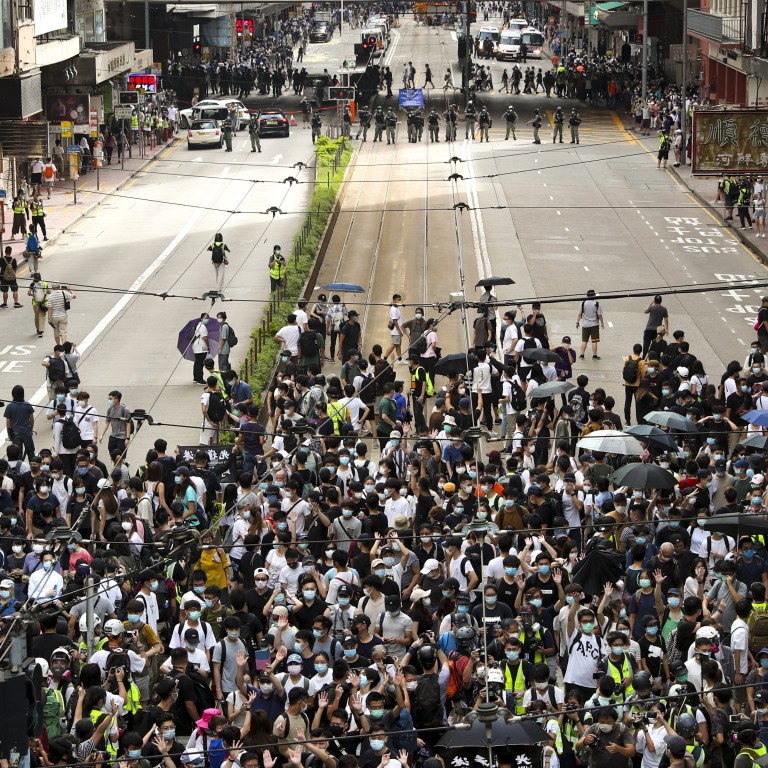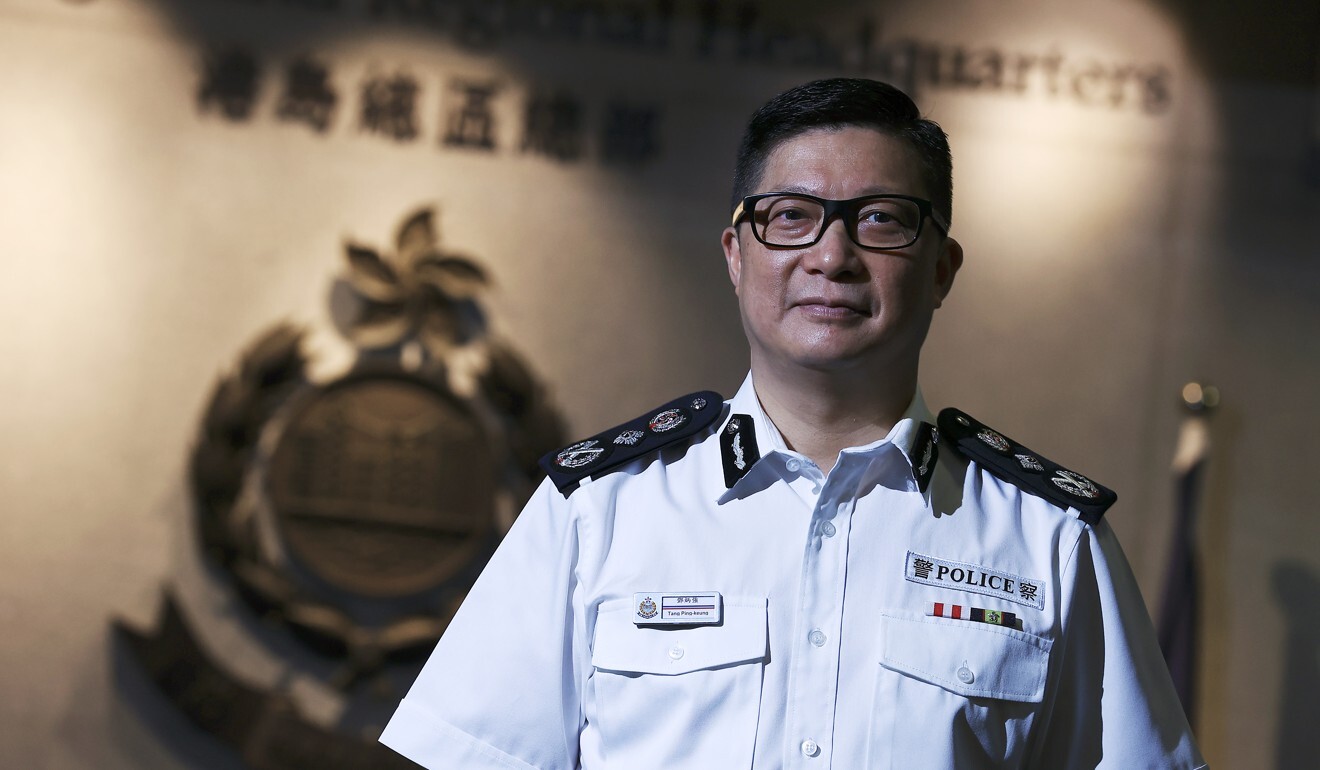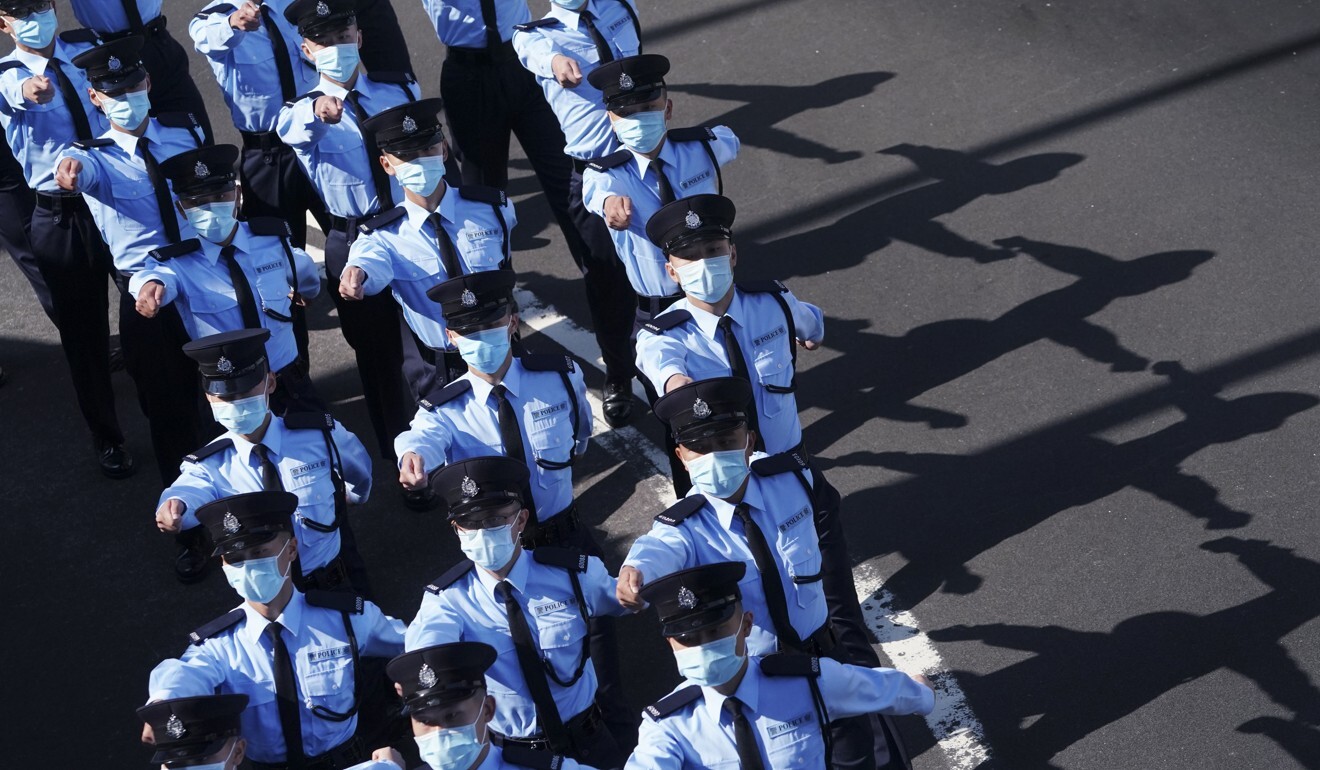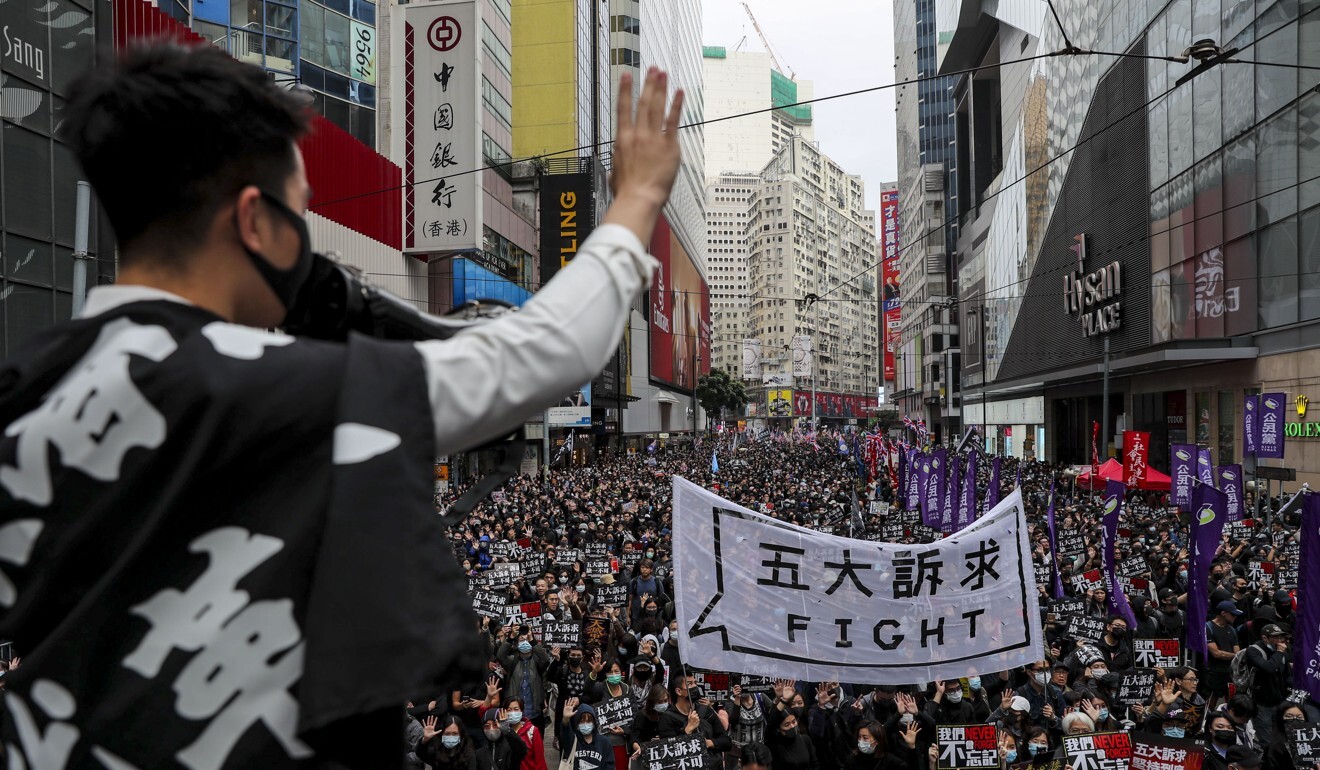
Hong Kong police chief accuses foreign countries harbouring protest-related fugitives of putting ‘politics above the law’
- Commissioner of Police Chris Tang also slammed the fugitives themselves, saying if they maintain their innocence, ‘tell the story to the court’
- The remarks were made in a wide-ranging interview with the Post marking the end of Tang’s first year as the force’s commander
Hong Kong’s police chief has lashed out at overseas countries, accusing them of putting “politics above the law” in providing a safe haven for protest-related fugitives while suspending extradition treaties with the city, just to make a “statement”.
“If they think they were innocent, tell the story to the court. Hong Kong enjoys a fair legal system that is trusted by many people.”

Australian universities move to protect Hongkongers from security law
As of the end of October, police had arrested 10,148 people, aged from 11 to 84, in connection with the social unrest. Another 23 men and 6 women have been arrested under the sweeping national security law, imposed on the city on June 30 to outlaw any acts of subversion, secession, terrorism and collusion with foreign forces. Offenders face up to life in prison.
Since then, eight of the 19 countries that had extradition agreements with Hong Kong have suspended the deals, citing fears of political persecution. They comprise the members of the Five Eyes intelligence alliance, along with Finland, Germany and Ireland. France also halted the ratification of an extradition treaty with Hong Kong that had yet to be finalised.
At least two protest suspects were stopped before boarding a plane to the UK in July after being accused of attacking police officers.

The police chief on Wednesday warned that the harm of suspending extradition treaties with Hong Kong would be mutual, as it affected the handover of criminals between both jurisdictions.
“Riding politics above the law is very pathetic,” the 55-year-old veteran said. “Some countries granting asylum [to protest fugitives] or suspending the treaty will only benefit the criminals. Giving advantages to them just to make a political statement is saddening.”
The Post has previously reported that diplomatic figures show at least 181 Hongkongers had applied for asylum in five countries as of September of this year, 136 of them in Australia.
More Hongkongers seeking asylum overseas, with Australia, Canada their main destinations
“She claimed she was held in a refugee camp for one year and sexually assaulted. I don’t know how true the report is or what offence she was wanted for in Hong Kong, but maybe if she faced the legal consequences in the city, the jail term would have been less than a year,” Tang said.
And while some protest fugitives have sought asylum officially, some have chosen to pursue informal, and in some cases illegal, means.

Tang said Hong Kong authorities would need to wait for the judicial procedures on the mainland to be completed before requesting the return of the 12, while Taiwanese authorities still have not confirmed the arrest of the other five to his officers.
The police chief also warned other suspects against trying to abscond, as the risks were enormous.
“Fleeing the city is not a way to assume responsibility,” he said. “There could be danger during the journey, such as the boat capsizing.”
Of those arrested over the social unrest, around 23 per cent, or 2,325 individuals, have been prosecuted. Among the 726 people who have completed judicial procedures, 83 per cent were convicted, with the stiffest prison sentence handed down lasting 32 months. Nearly 1,600 suspects are still facing trial.

